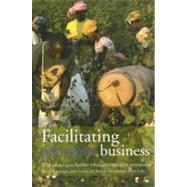Facilitating Pro-Poor Business : Why Advice Goes Further When Itâs Backed by Investment
, by Boomsma, Marije J.; Laven, Anna; Piters, Bart De Steenhuijsen- ISBN: 9789460221552 | 9460221556
- Cover: Paperback
- Copyright: 8/31/2011
In development cooperation there is a trend that the private sector is seen as an integral part of the solution to reduce poverty. As a result pro-poor businesses emerge, involving actors such as private businesses, the public sector, farmer organizations and NGOs. There are some challenges in bringing these different actors together in a social enterprise. Generally, there is a need for a facilitator to align interests, bridge cultural differences, fill gaps in skills, and deal with power differences, wrong expectations and prejudice. The Royal Tropical Institute (KIT) has experience in playing this role. But over time this role has changed from being an advisor with little mandate to act and no ownership to being a full business partner, backed by investment. Through this new role they have achieved more direct influence on the conditions under which smallholders are active participants in business. But other roles are also important. The five cases in this bulletin (ginger in Sierra Leone, tuna in Ghana, organic cocoa on the Dominican Republic, biodiesel in Mali and a trade house in Mali) illustrate that each type of facilitating role has its advantages and disadvantages, and that there are many factors a good facilitator needs to take into account when bringing together the public and private sector and civil society to form a pro-poor business. The hope is that other organizations recognize themselves in these roles and are inspired to make similar (or better) choices so more people will benefit.







